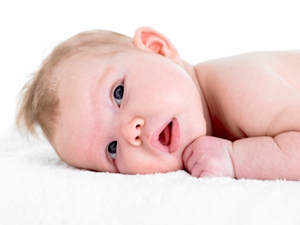A disability is something that every mother fears when it comes to the health of her baby. Still, it's important to detect hearing loss early or else children may have difficulty learning to communicate later in life and struggle with basic social skills. In 2009, more than 5,000 babies were diagnosed with permanent hearing loss, according to the Centers for Disease Control and Prevention.
So how do you find out if your little one's hearing is less-than-perfect? Your baby may have a hearing disability if you notice that she doesn't seem startled by loud noises as a newborn or if she isn't using single words by 15 months of age, notes the National Library of Medicine. Still, hearing loss often goes unnoticed in some children until they reach school age.
Luckily, every U.S. state has Early Hearing Detection and Intervention (EHDI) programs in place. It's also recommended that parents take advantage of the initiatives to make sure their children get the care they need.
If you have a family history of hearing loss, you and your partner should consult with a doctor before trying to conceive. Pregnancy-induced hypertension, maternal diabetes and intrauterine infections can contribute to non-hereditary hearing loss.
